With a looming food crisis powered by conflict, climate change, possibility of global recession, growing food needs to be made easier
Arguably one of the world’s oldest and most important occupations, agriculture in India goes back to 9000 BCE, accounts for 18% of our GDP, and provides employment to 58% of our population, while also feeding the entire country. Unfortunately, however, while most developed countries have employed robots, AI, GPS, temperature sensors, aerial images, and more to aid agriculture, India is still far behind.
In addition to the fact that over 80% of Indian farmers have farms smaller than 1.08 hectares making them hard to sustain, inability to repay loans, failing crops, climate change, irregular rainfall, soil erosion, and loss of biodiversity all add to the woes of the Indian farmer.
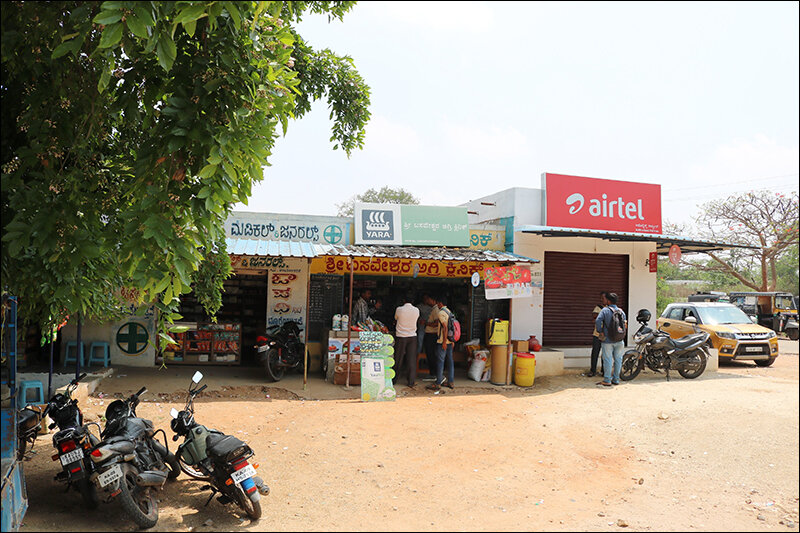
Unorganized retail in India
While the Digital India campaign launched by the government of India in 2015 was successful at making the internet accessible to over a billion people, seeing something online and buying it are two different things. While 65% of product “discovery” does indeed happen online, a whopping 97% of the actual “shopping” is still an offline affair in India. This is mostly due to the high density of shops (15 million), the majority of which (about 96%) consist of “Kirana” or “ration” shops that are smaller than 500 sq feet. This brings India’s per capita retailing space to 2 square feet, the lowest in the world.
With over 80% of our farms being too small and 96% of our shops being too tiny, it doesn’t take long to figure out why we lag behind in agricultural technology. Farmers are too poor to drive to the stores in big cities to make purchases and shopkeepers in rural India aren’t rich enough to stock things that they aren’t sure will sell immediately.
To quote Prashanth Venkataramana, CEO and co-founder of Essmart Global, “small retailers don’t have the capital or the shelf space to meet the minimum order requirements put forth by manufacturers and city-based distributors, this is why they usually sell low margin products like FMCG, seeds, etc.”
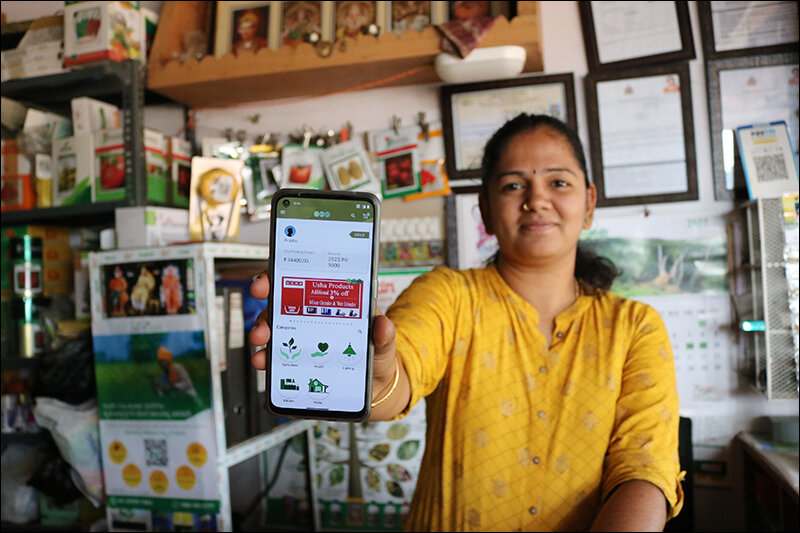
Essmart Global
Providing rural retail shops with a digital platform that they can use to purchase high quality, higher margin, livelihood improvement products, Essmart now has a network of over 5,000 shops in rural towns and villages across India. The product catalog consists of over 450 products including solar lights, solar water pumps, solar refrigerators, smokeless wood-burning rocket stoves, and innovative products like school bags that convert into study tables. All of that in addition to home appliances like irons, mixers, and fans, as well as modern farming tools like battery-operated sprayers, motor-powered weed removers, chainsaws, and other power tools.
Unlike in developed countries where agricultural tools, safety gear, and essential technologies for living off the grid are available in every department store, in India, they are often marketed as goods for poor people. Essmart takes the opposite approach and markets them exactly like regular consumer goods with elite brands, product training, marketing, access to credit, and warranty facilitation. All the agricultural hand tools in the catalog are made by Tata, the smokeless “chulha” or rocket stove is made by Bosch, and most of the power tools come from the Swedish company Husqvarna. Additionally, thanks to the shop-facing dealer app launched in 2021, 100% of orders are digital, with 70% requiring no support from the sales team.
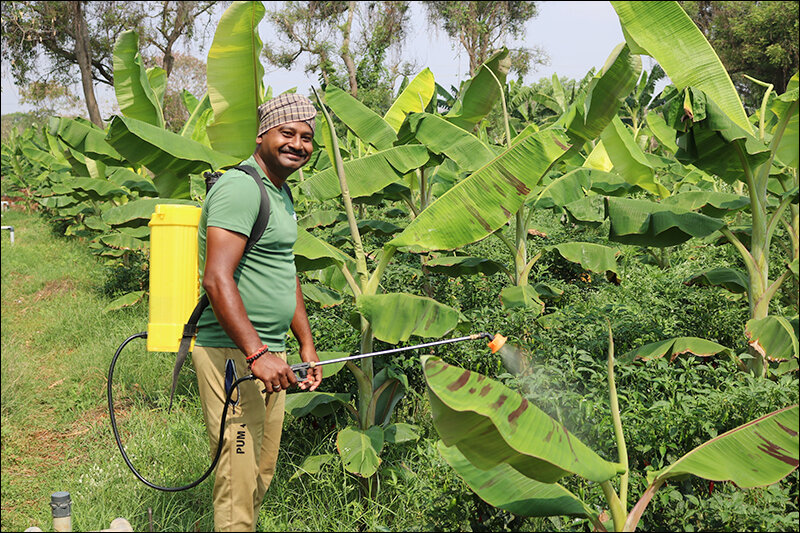
Creating Smart Farmers
While Amazon and Walmart’s Flipkart have been monopolizing online shopping in India, the Open Network for Digital Commerce (ONDC) is an open and democratized e-commerce platform launched by the Indian government. Aimed at leveling the playing field for micro, small, and medium-sized businesses in India, Essmart plans to use it to power their SMART Farmer Network that connects local shops directly to farmers and end-customers. The SMART Farmer Network will be accessible via a farmer-facing app that provides a number of different services. At the moment, a beta version of the farmer-facing app has been launched solely for financing in partnership with One-Acre Fund and digital platform Avanti Finance.
Other services available to farmers from Essmart-powered local Kirana shops include crop advisory, advanced soil testing, drone spraying, and soil health management through Krishitantra, a soil health and data management company. Essmart has also partnered with Farmonaut, an organization that does satellite-based crop health monitoring to provide farmers with information on everything from current and forecasted weather to crop health, crop area, and yield estimation. While farmers need to visit their local shops to avail the Krishitantra services, the Farmernaut services are provided by Essmart staff who go on-site and teach farmers how to use satellite images and remote sensing data to their advantage.
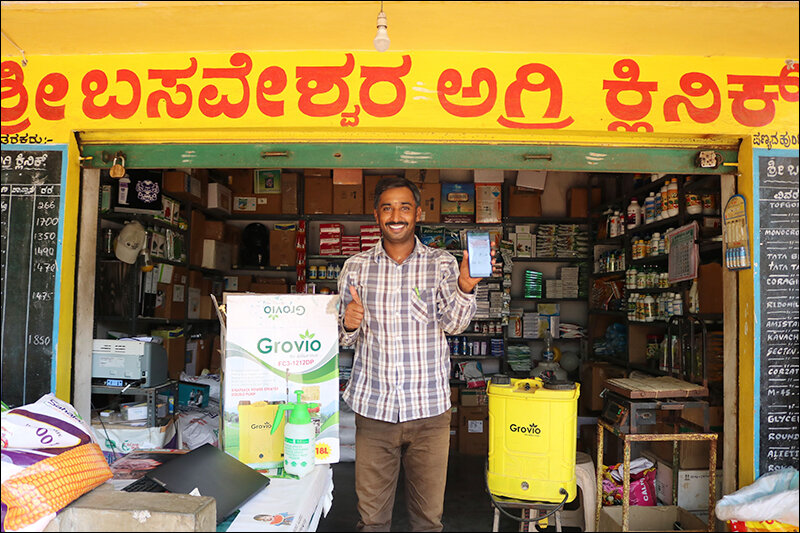
Essential Technologies
2022 saw a steep rise in food prices all over the world with the WHO even calling 2022 a year of unprecedented hunger. With a looming food crisis powered by conflict, climate change, and the possibility of global recession, growing food needs to be made easier, not harder. Farmers need access to essential modern agricultural technologies in order to tilt the balance back in their favor in terms of profitability, efficiency, personal safety, and environmental safety. While Essmart has successfully identified and begun to address the core issues behind the digital disparity between our cities and our farms, there are still miles to go and millions of Kirana shops that are essentially still living in the dark ages.
In case you missed:
- AI, Lazers, and Robotics on the Farm
- This Fuel Cell Lasts Forever and is Powered by Dirt!
- While all eyes were on the Titan, the US approved lab-grown meat
- This single-cell organism is smarter than a human
- NavIC, India’s Aatmanirbhar answer to GPS
- Meet Einstein Copilot, Salesforce’s new conversational AI
- Liquid trees and solid gases, the things we do for the environment
- Robots on the Battlefields of Ukraine and in the Tunnels of Gaza!
- It’s 2023, and we officially have flying cars
- Jetpacks are real, and Domino’s just used one to deliver Pizza



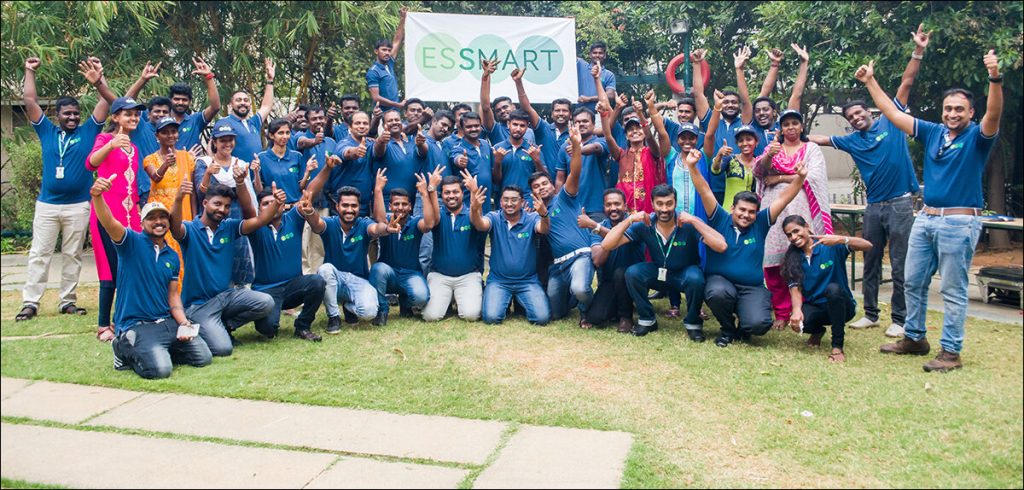



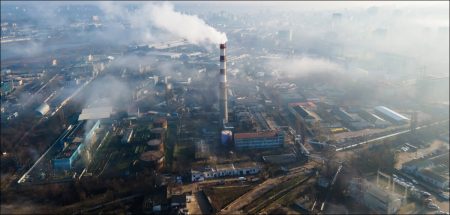
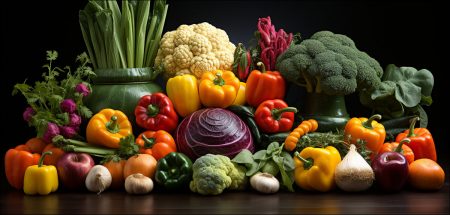

1 Comment
Amazing! Wish there were more people like P.Venkataramana promoting rural stores on a digital platform. Great and informative article from Nigel Pereira